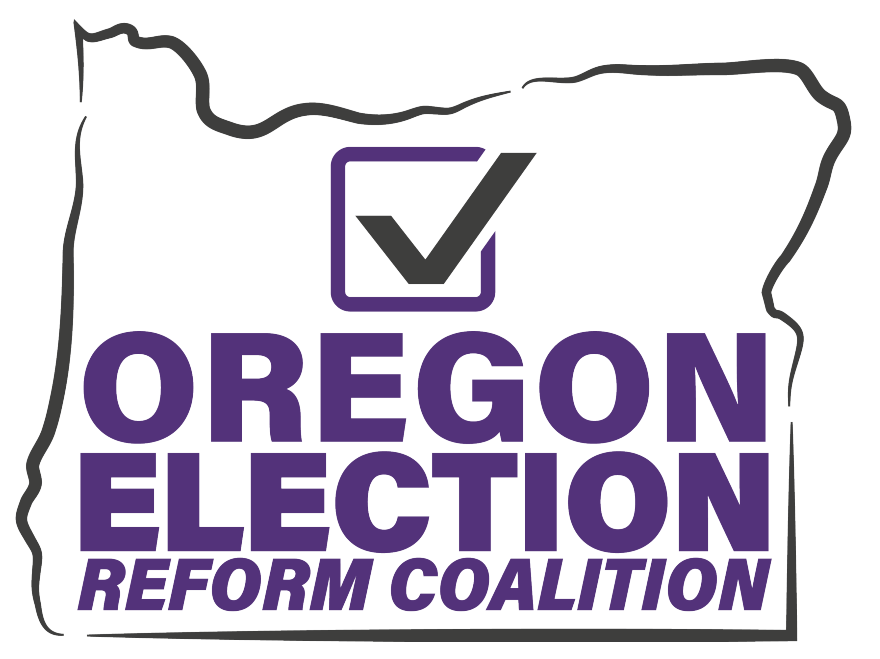News and views
PRESS RELEASE
Date: February 15, 2023
From: Oregon Election Reform Coalition
For more information or inquiries, please contact:
Rob Harris, 971-732-4581 or Lainie Block Wilker, 503-754-9084
A group of persistent democracy reform advocates has filed an initiative to place a major election reform measure on the Oregon general election ballot in 2024:
Initiative Petition 19 (IP-19), the Oregon Election Reform Act
Under current election laws, 42% of registered voters cannot vote in what are often the elections that determine who will enter office. IP-19 will sweep away partisan restrictions on who can participate in publicly-funded primaries. If the proposal passes, all voters and all qualified candidates will be able to vote and run in Oregon primaries.
IP-19 requires candidates for each office to compete head-to-head on the same primary ballot, with the top five vote-earners advancing to the November general election. In the general election, voters will then rank or score the candidates, with votes tabulated with an automatic runoff method. Somewhat similar changes to elections have been adopted by Alaska voters (See more) and could soon be used in Nevada where voters there approved a similar system in 2022. (More)
The Oregon version is different from those systems or the “top two” systems in California and Washington. IP-19 features changes that recognize Oregon’s history and vibrant minor party system, as well as the State’s willingness to lead nationally in democracy reform. Under IP-19, political parties will continue to play an important role. One of IP-19’s innovations is that parties can “acknowledge” the candidates they deem acceptable in primaries and endorse the candidates they prefer in general elections, and this information will be shown on the ballot. IP-19 will shorten the campaign season by moving the biennial primary from May to the second week in August, the same day as Washington state’s primary. The quadrennial presidential primary is moved to the second week in March, creating a kind of “Pacific Northwest Super Tuesday” with Washington and Idaho.
“I belong to an organization that stands on the shoulders of long-ago suffragists, who fought to extend the vote to women. Modern day suffragists, men and women, continue to fight to protect and extend the vote.” She added that “IP-19 extends to ALL Oregon voters the full and equitable right to take part in our primary elections. Further, it provides for a new voting system that is more equitable and fair, offering more choice to voters.”- Dr. Barbara Klein- chief petitioner
“Our goals include fairness to voters and rewarding candidates that seek unity rather than division. We believe government improves when candidates are incentivized to listen to their entire constituencies, not just partisan primary voters.” Rob Harris- chief petitioner
“Our primary system is old and dysfunctional. All voters and all qualified candidates should be allowed to participate in elections funded by taxpayers. Voters in primaries should be able to choose any candidate they prefer, without limitations of party affiliation. IP-19 will modernize our election process in a balanced, straightforward and fair way.” Michael DeWolf - chief petitioner.
Open Primary: All voters vote in all races in primary elections
Primary moved to August: Shortens election season
All candidates appear on the same primary ballot. Voters can choose any candidate
Top five candidates move on to general election
In general election, voters rank or rate candidates, votes are tabulated using automatic runoff method
Presidential Primary moved to March to coincide with the Idaho and Washington Presidential Primaries: a “Northwest Super Tuesday”
Parties continue to play an important role through endorsements and fusion voting
Oregon Election Reform Coalition www.electionreform.info contact@electionreform.info
A rigorous, lucidly written evaluation of alternative voting methods authored by the League of Women Voters of Oregon: Ranked Choice Voting (RCV), Ranked Choic Including Pairwise Elimination (RCIPE), and Score Then Automatic Runoff (STAR). Election Methods Informational Update 2023, LWV Oregon
“The Demobilizing Effect of Primary Electoral Institutions on Voters of Color”, a paper presented by University of Southern California’s Political Science and Public Policy (2021).
A timely article on the perils of Top 2 in California, “Can CA’s top-two primary handle the race for Feinstein’s Senate seat? Don’t count on it.” The article was first published in the Los Angeles Times on February 17, 2023. In part because of issues with Top 2 in California and Washington, the Oregon Election Reform Act adopts Top 5. Perils of Top 2
An important legal analysis, “Let All Voters Vote: Independents and the Expansion of Voting Rights in the United States.” Published in the Touro Law Review.
“Separate Party Primaries Make Us All Losers,” by Paul F. deLespinasse, retired professor of political science, published Mar. 23, 2023, Lenconnect.com/Daily Telegram.
